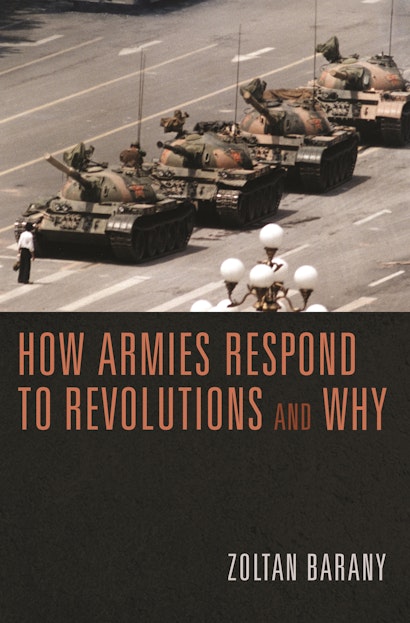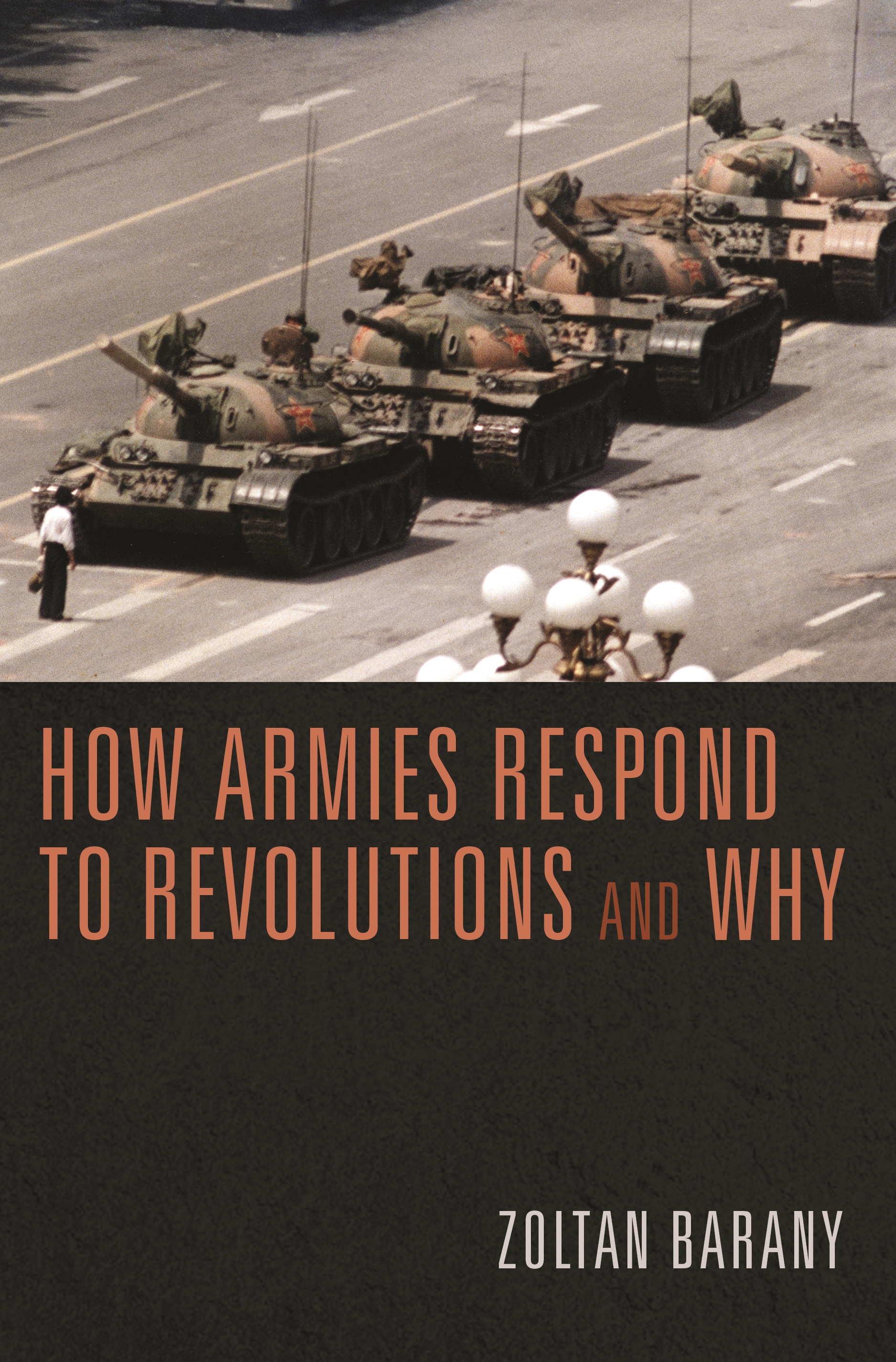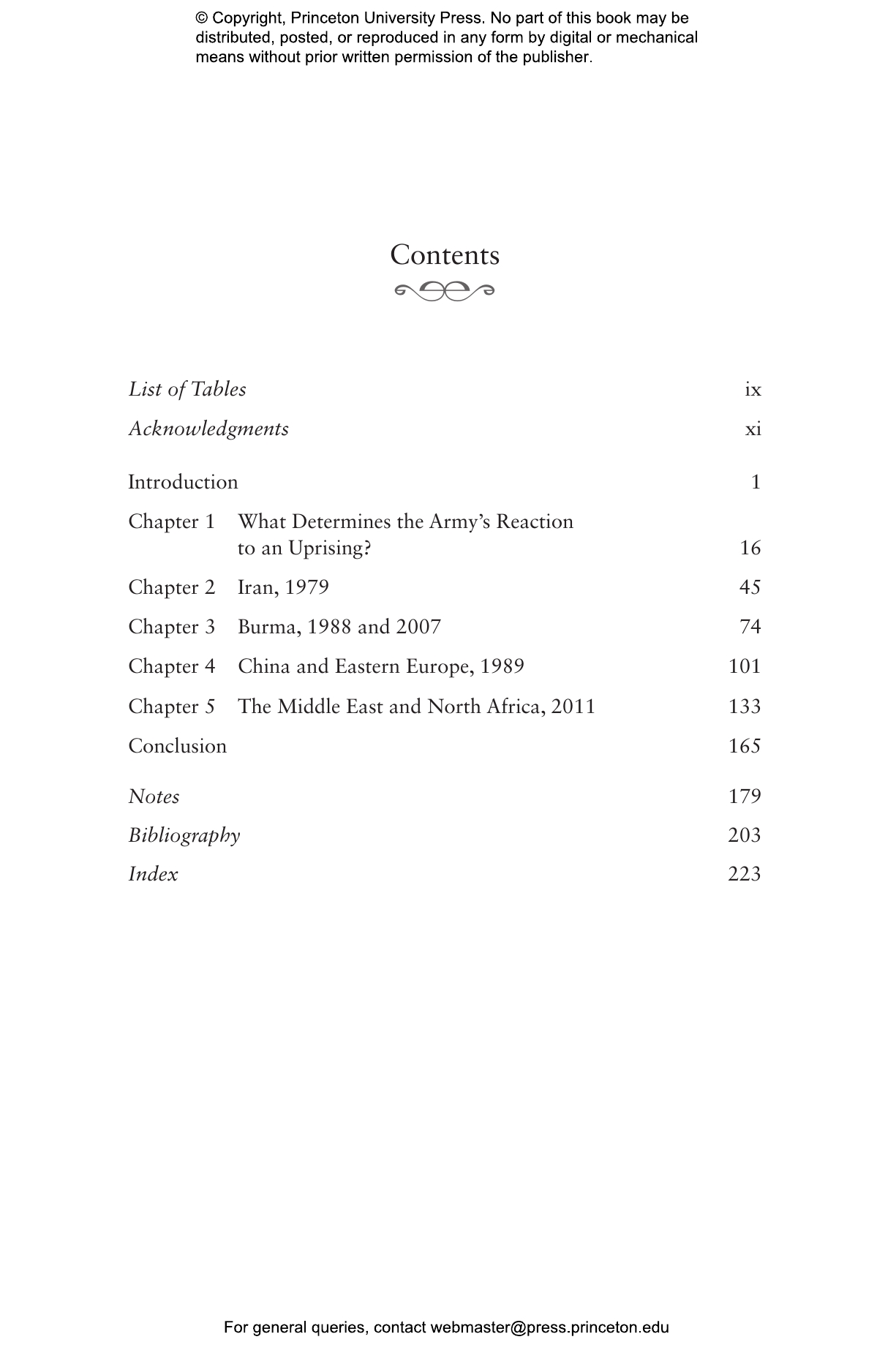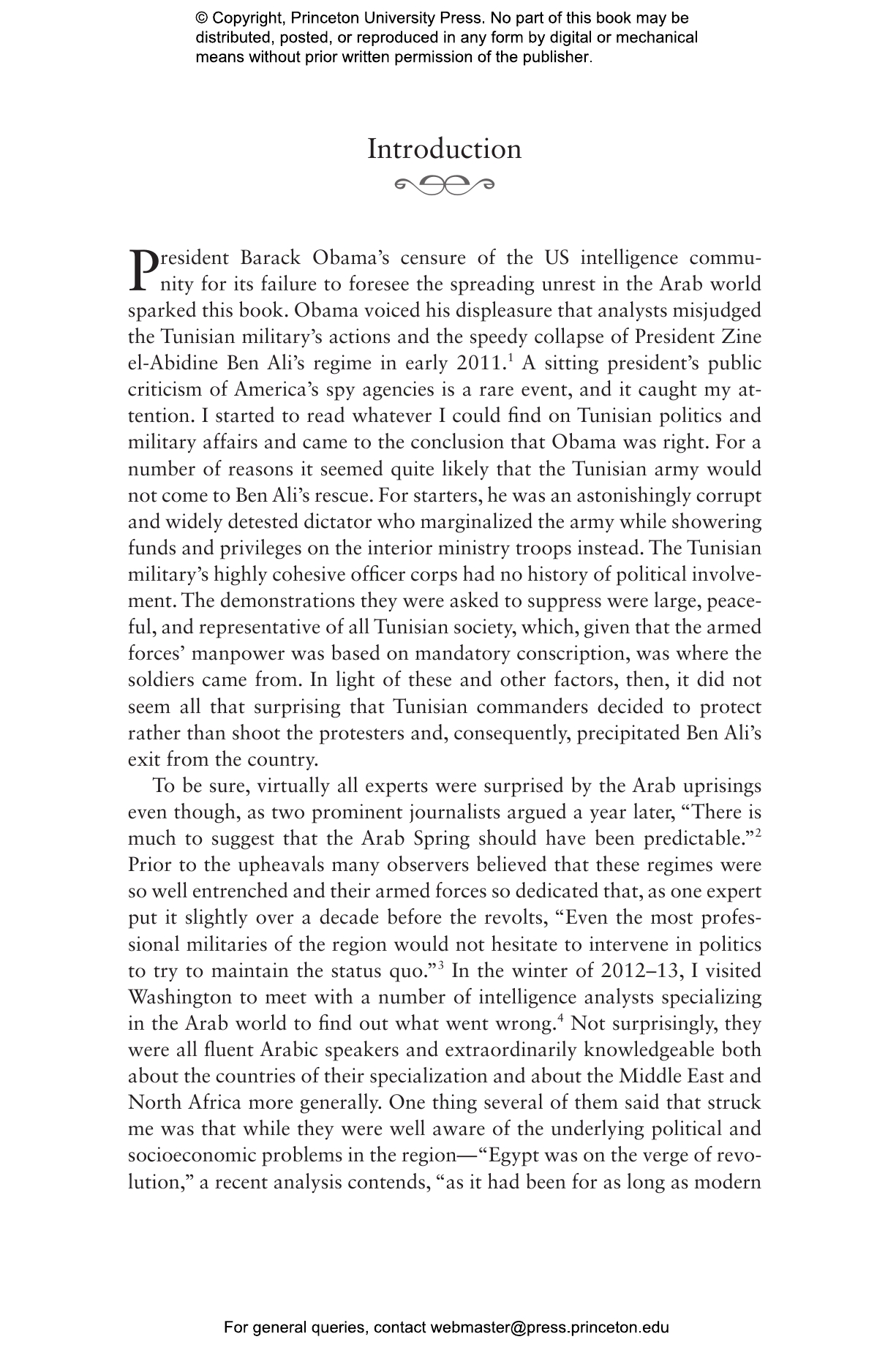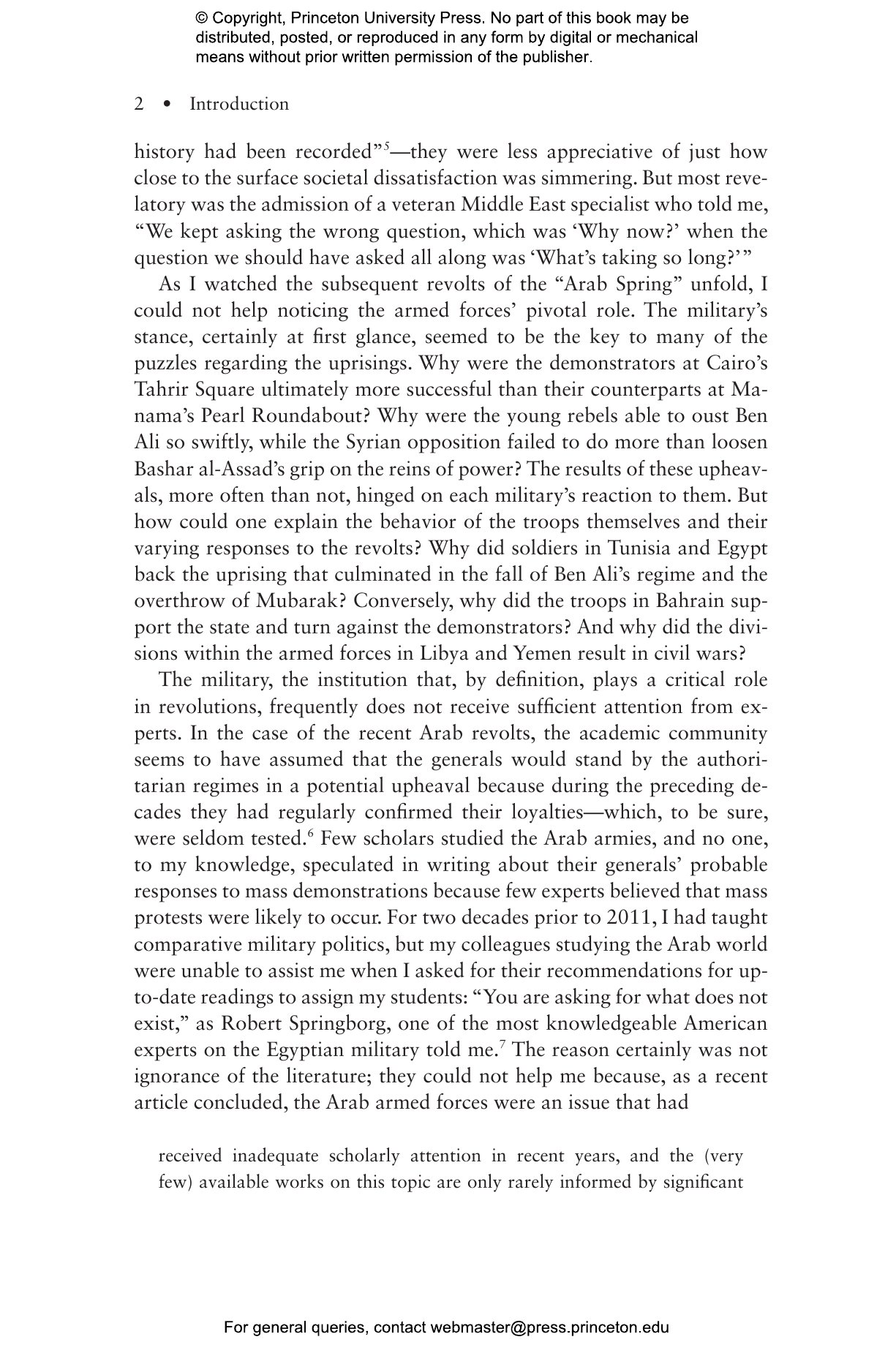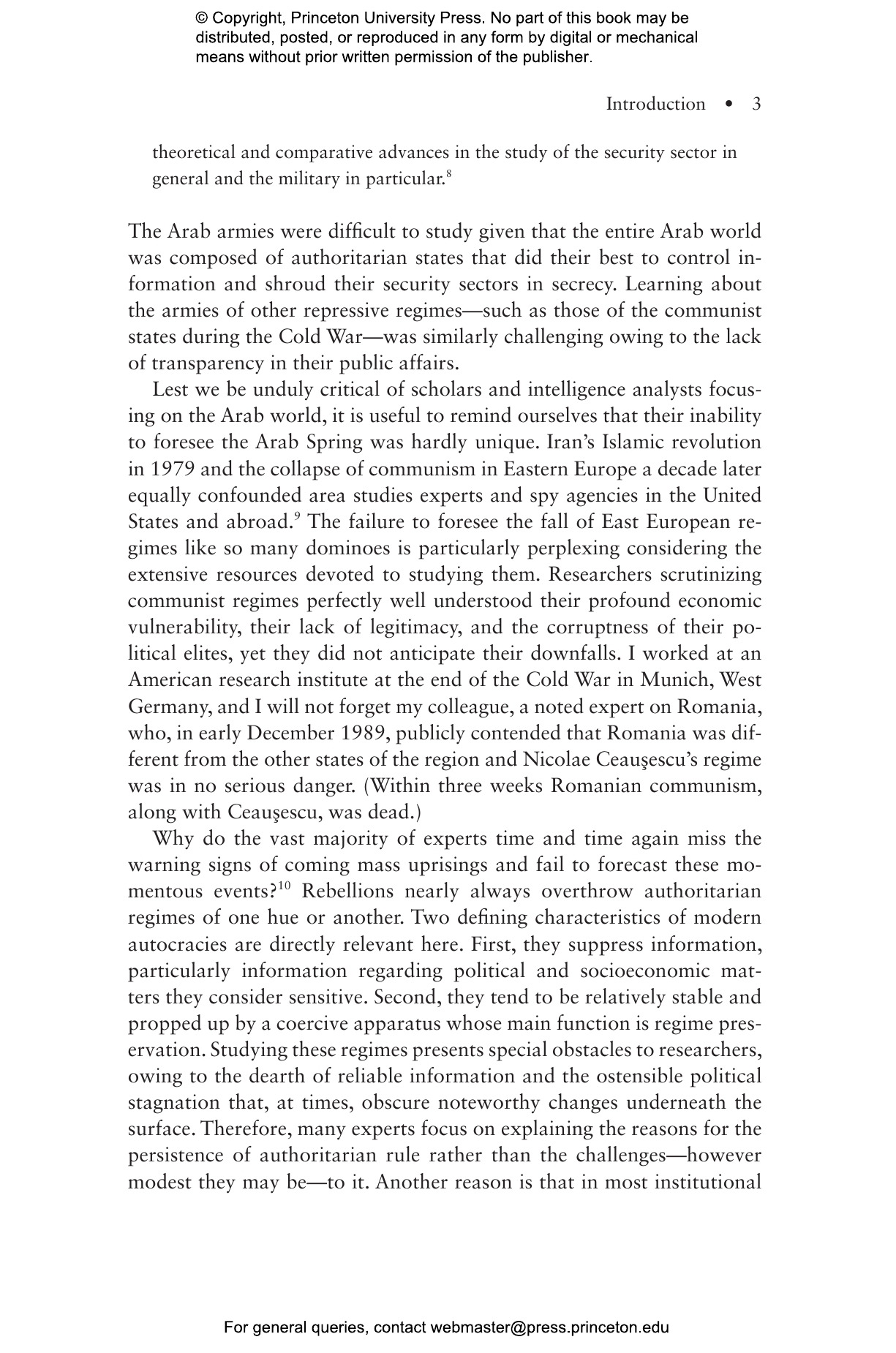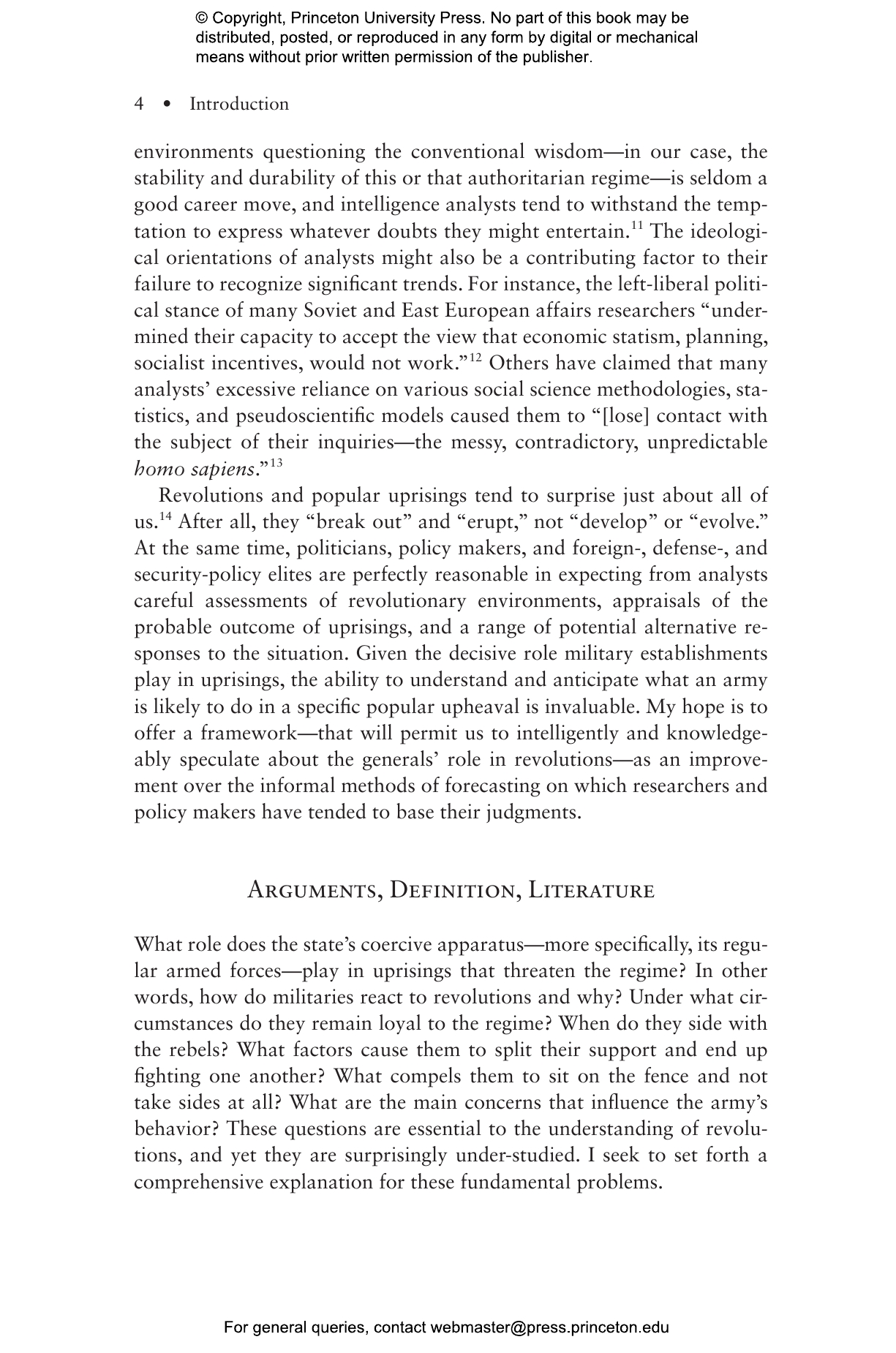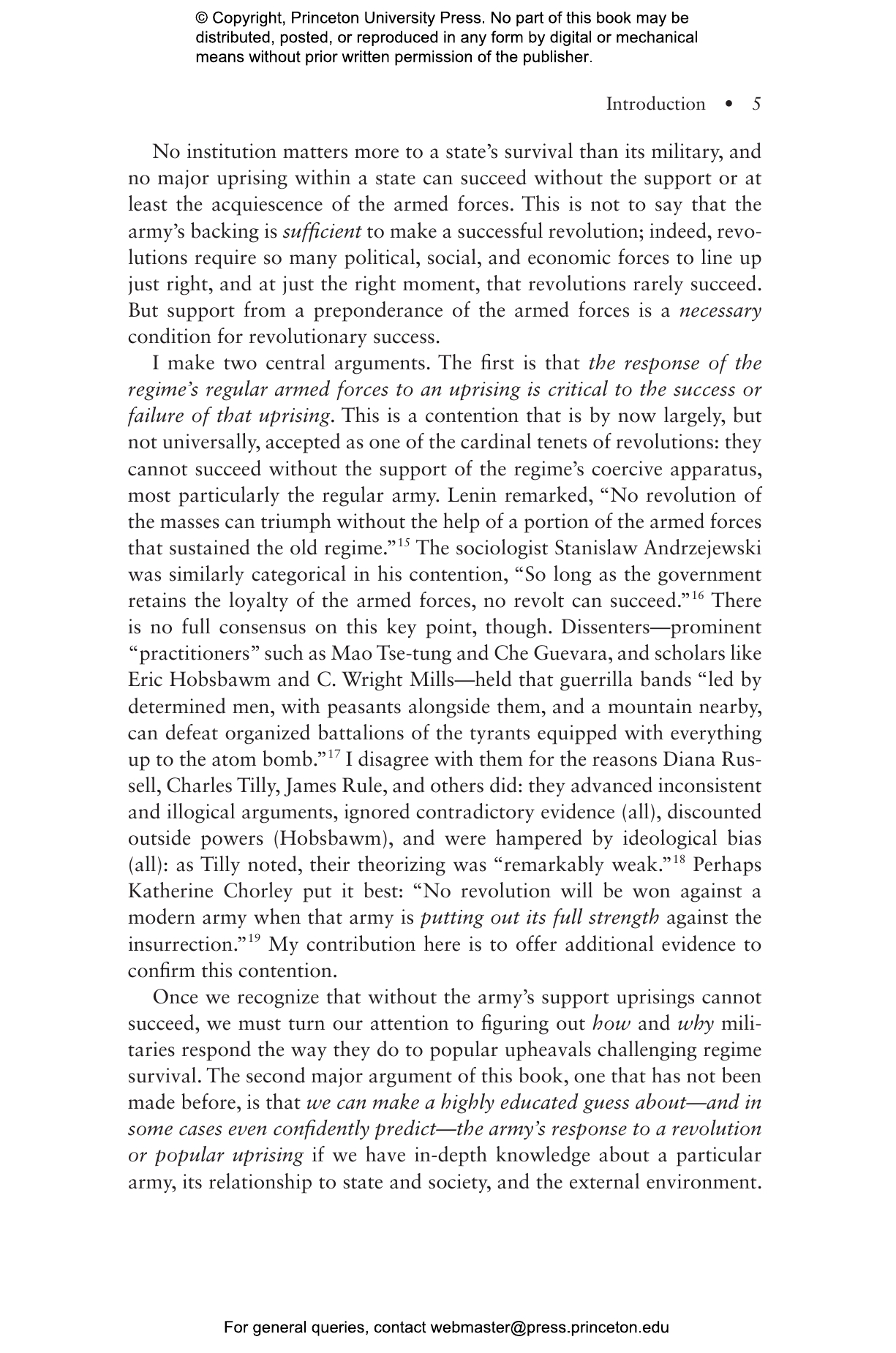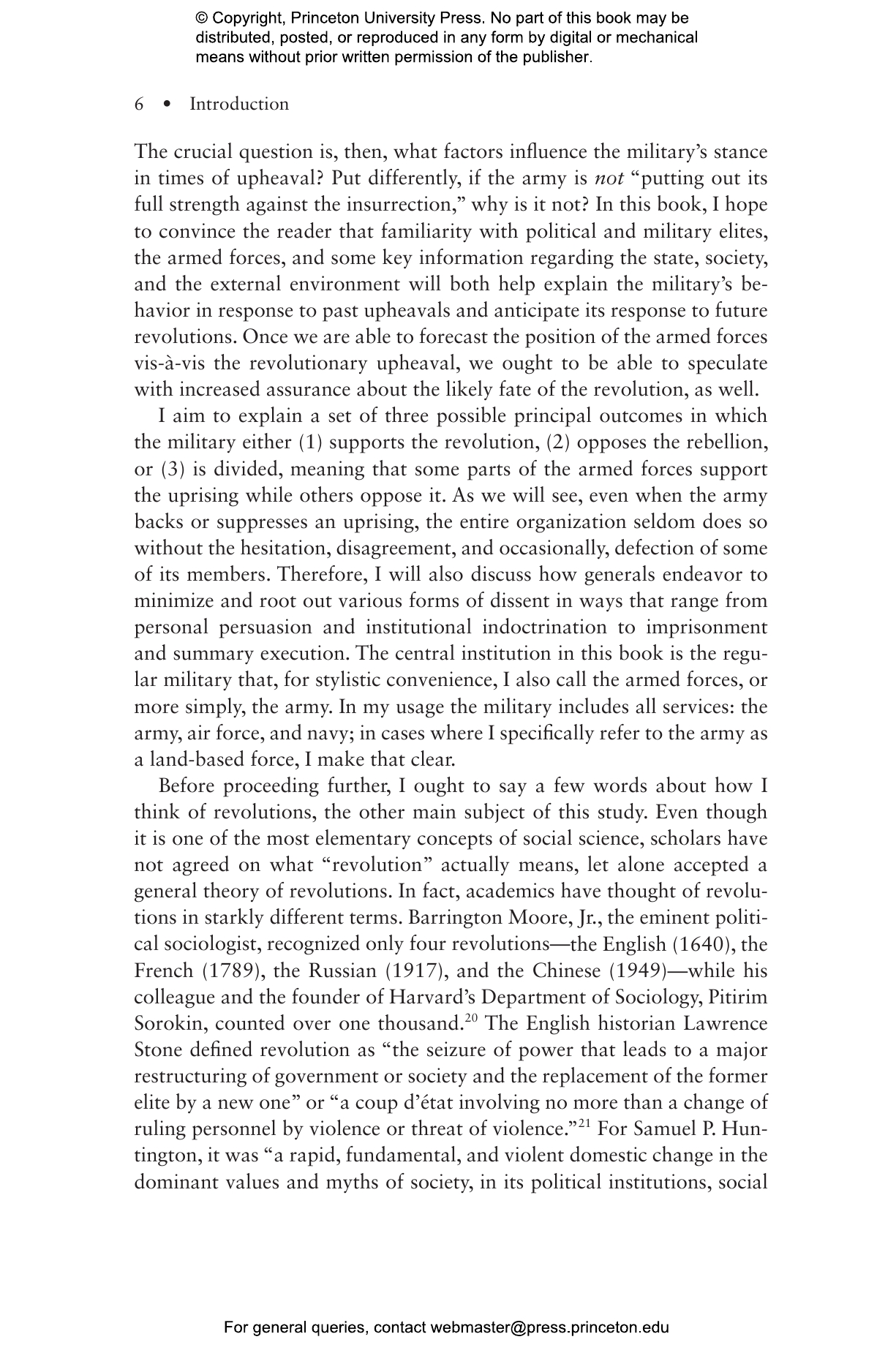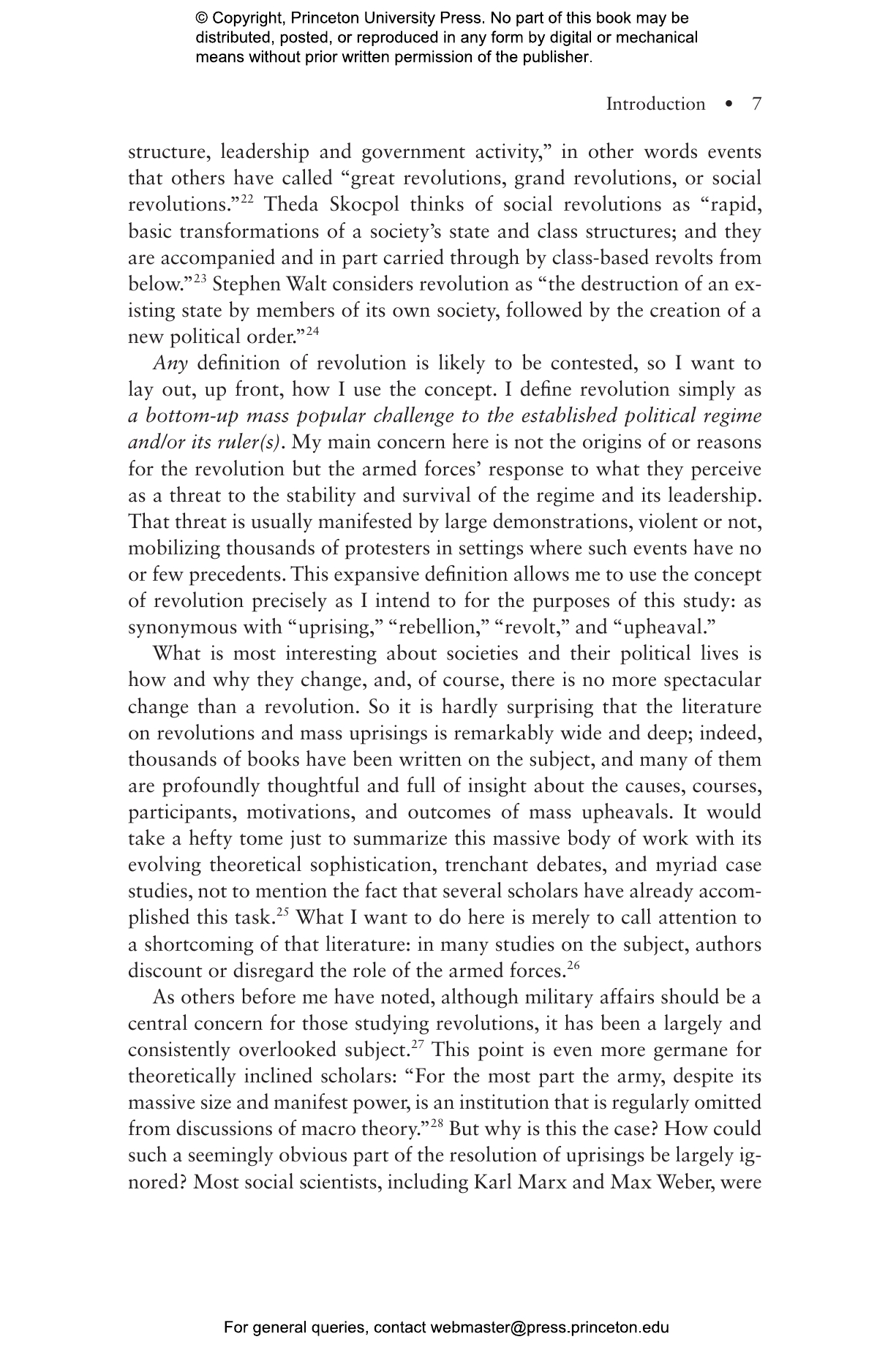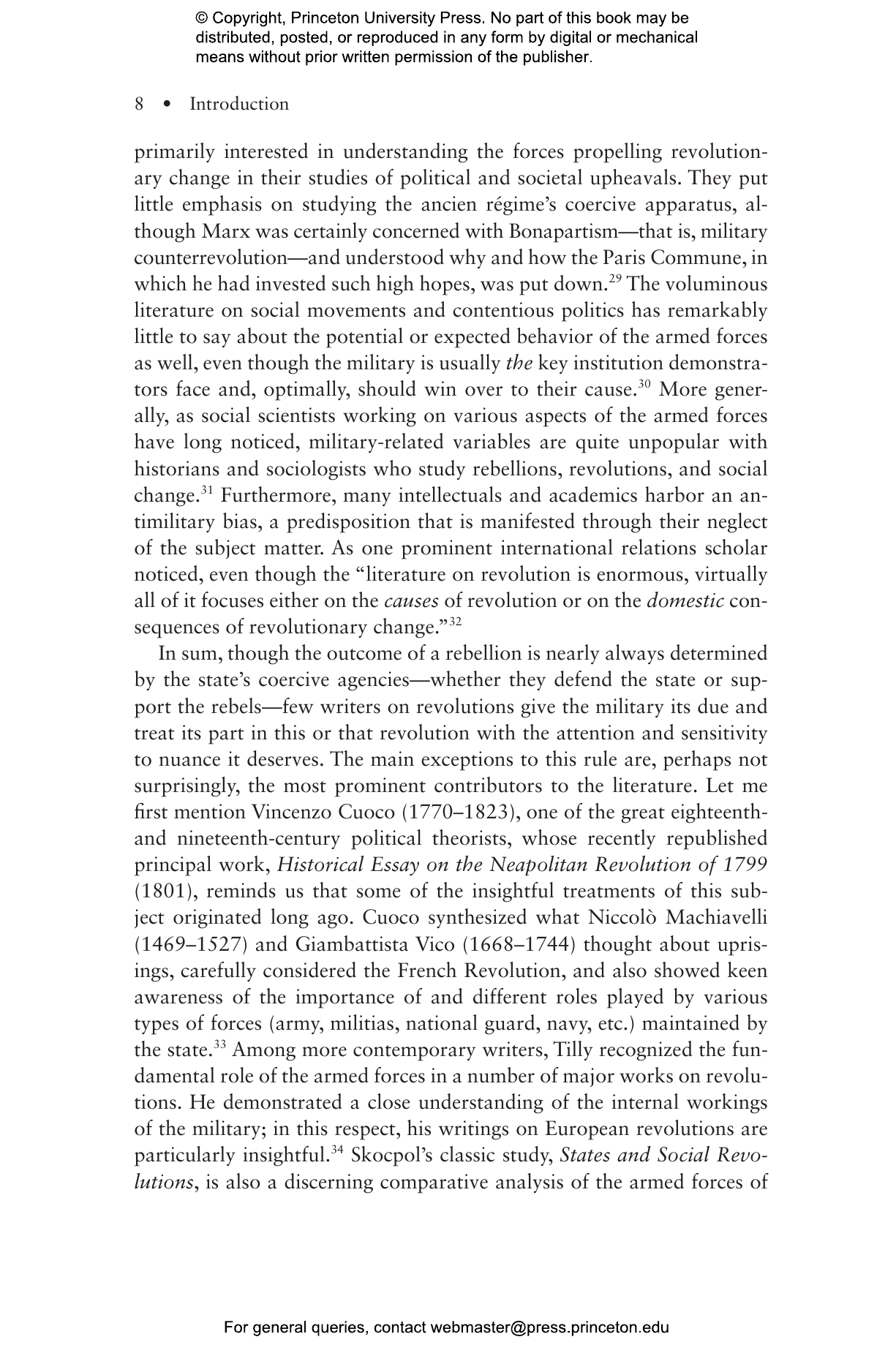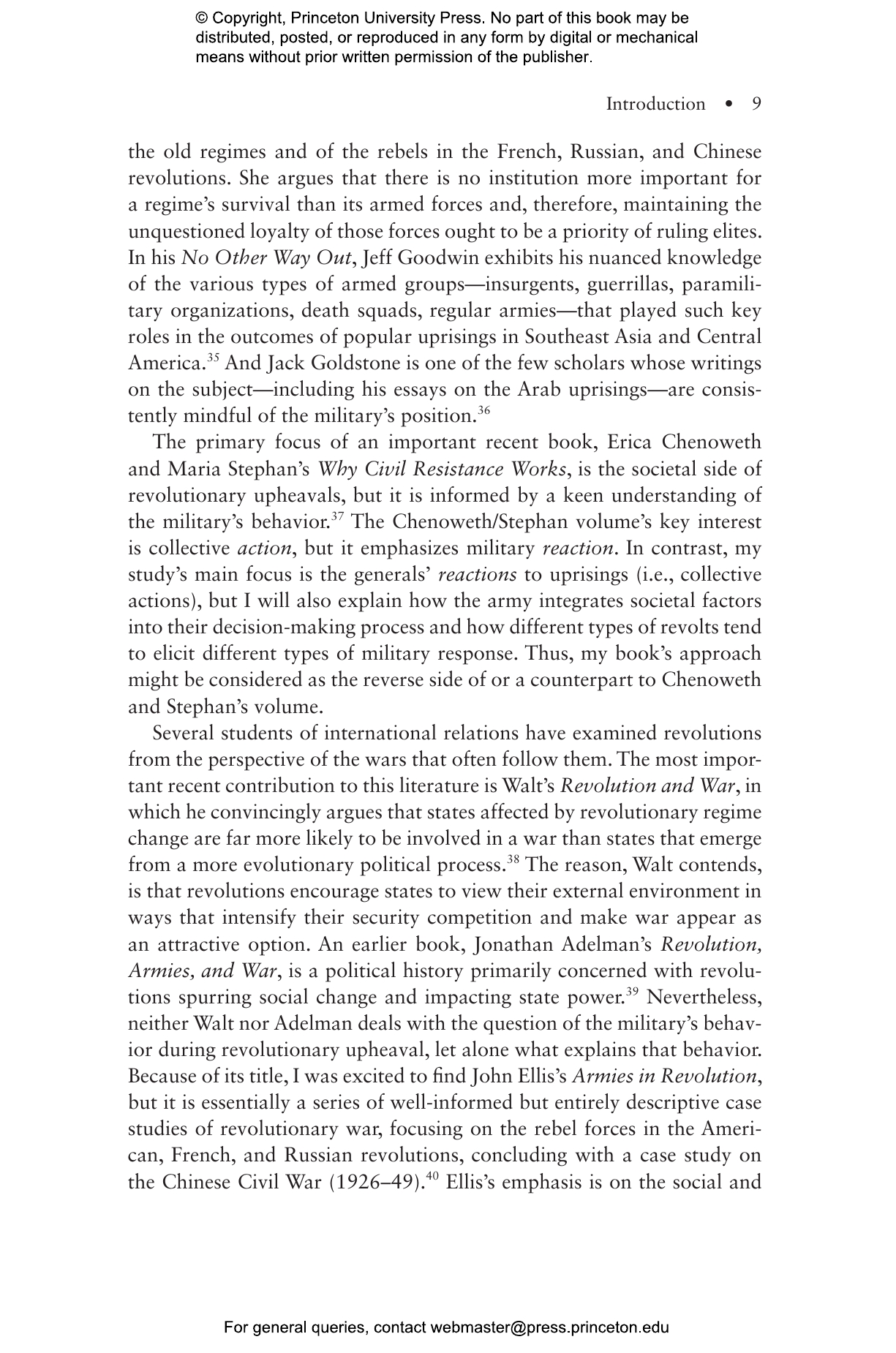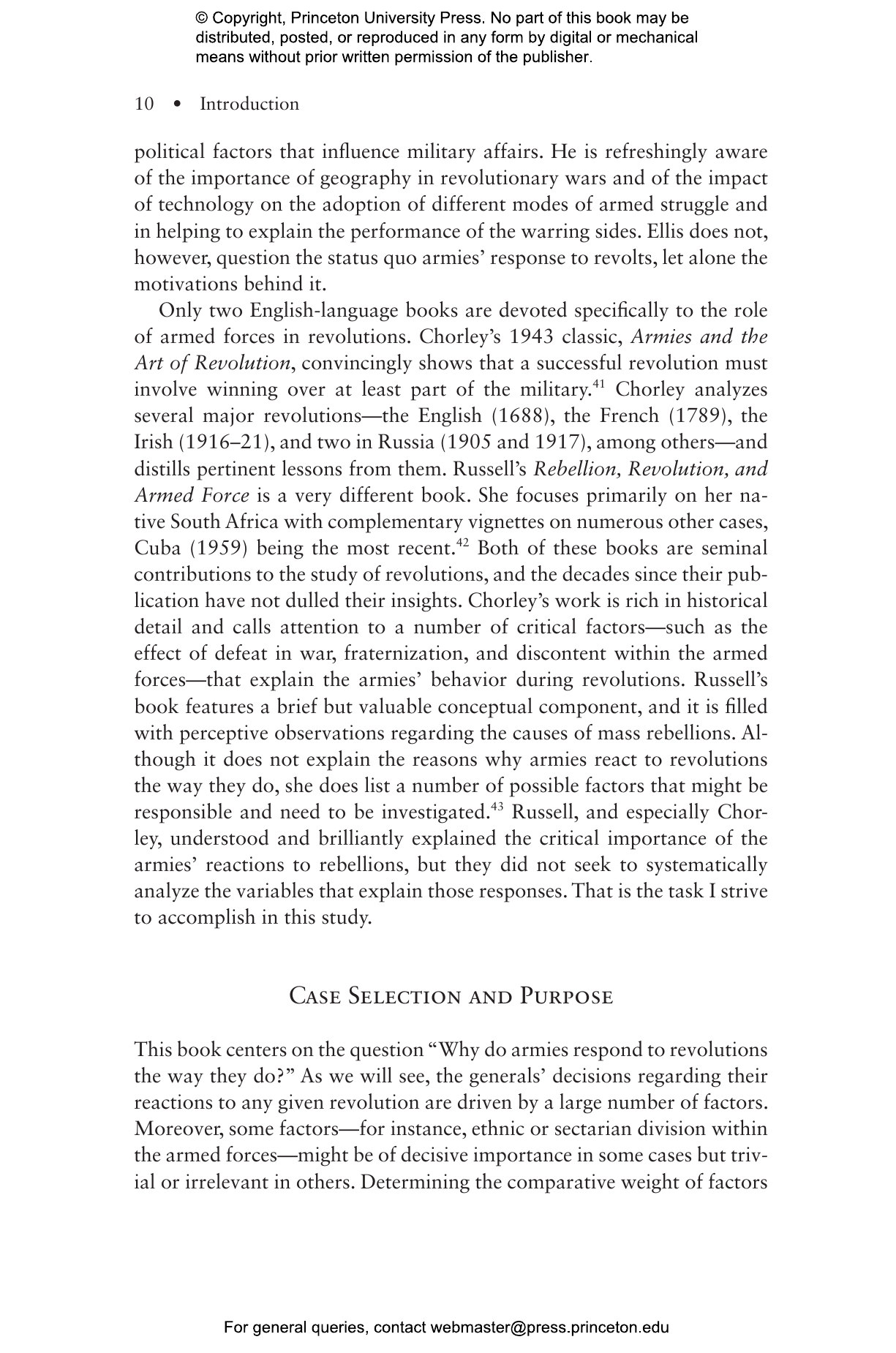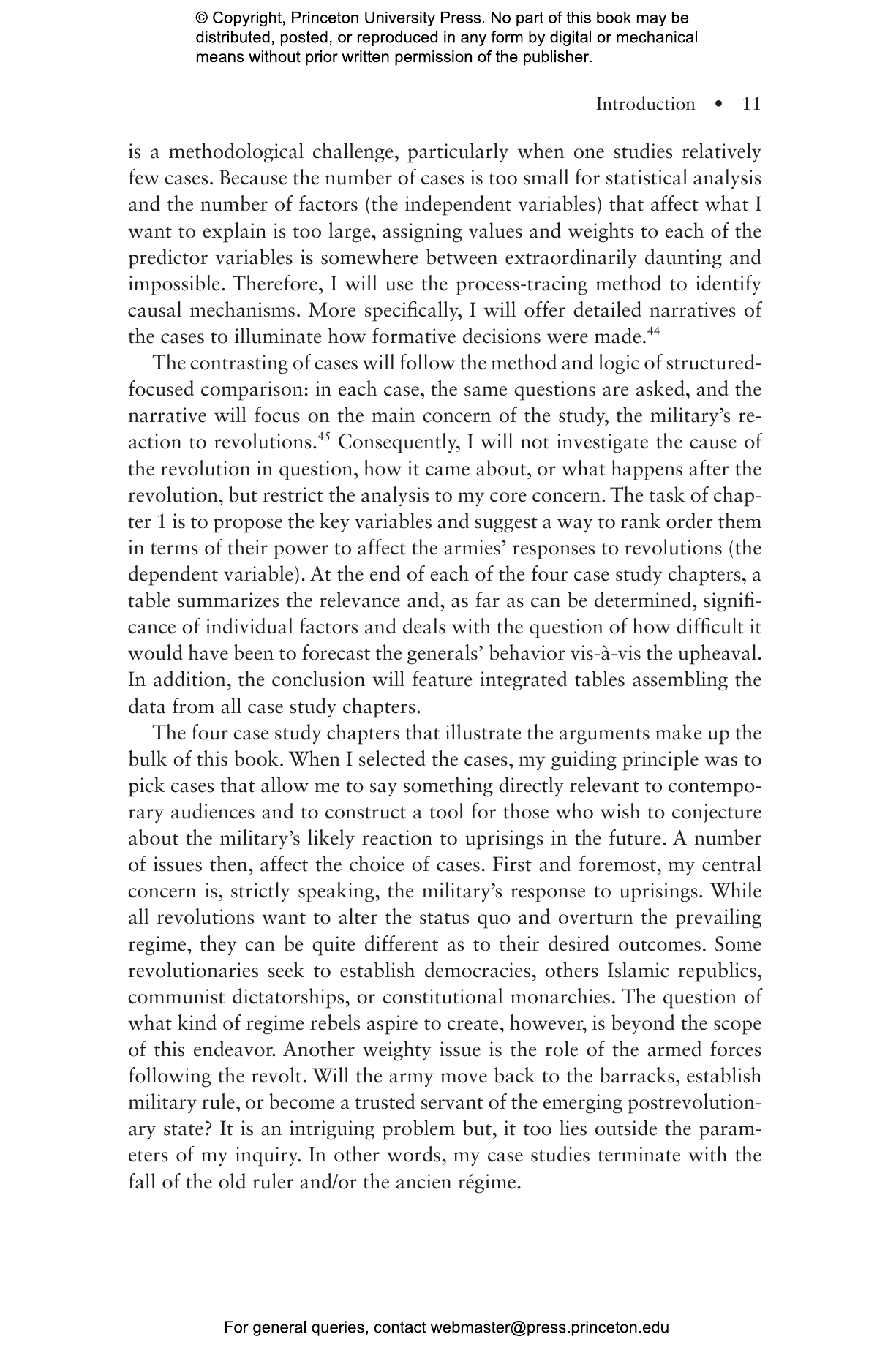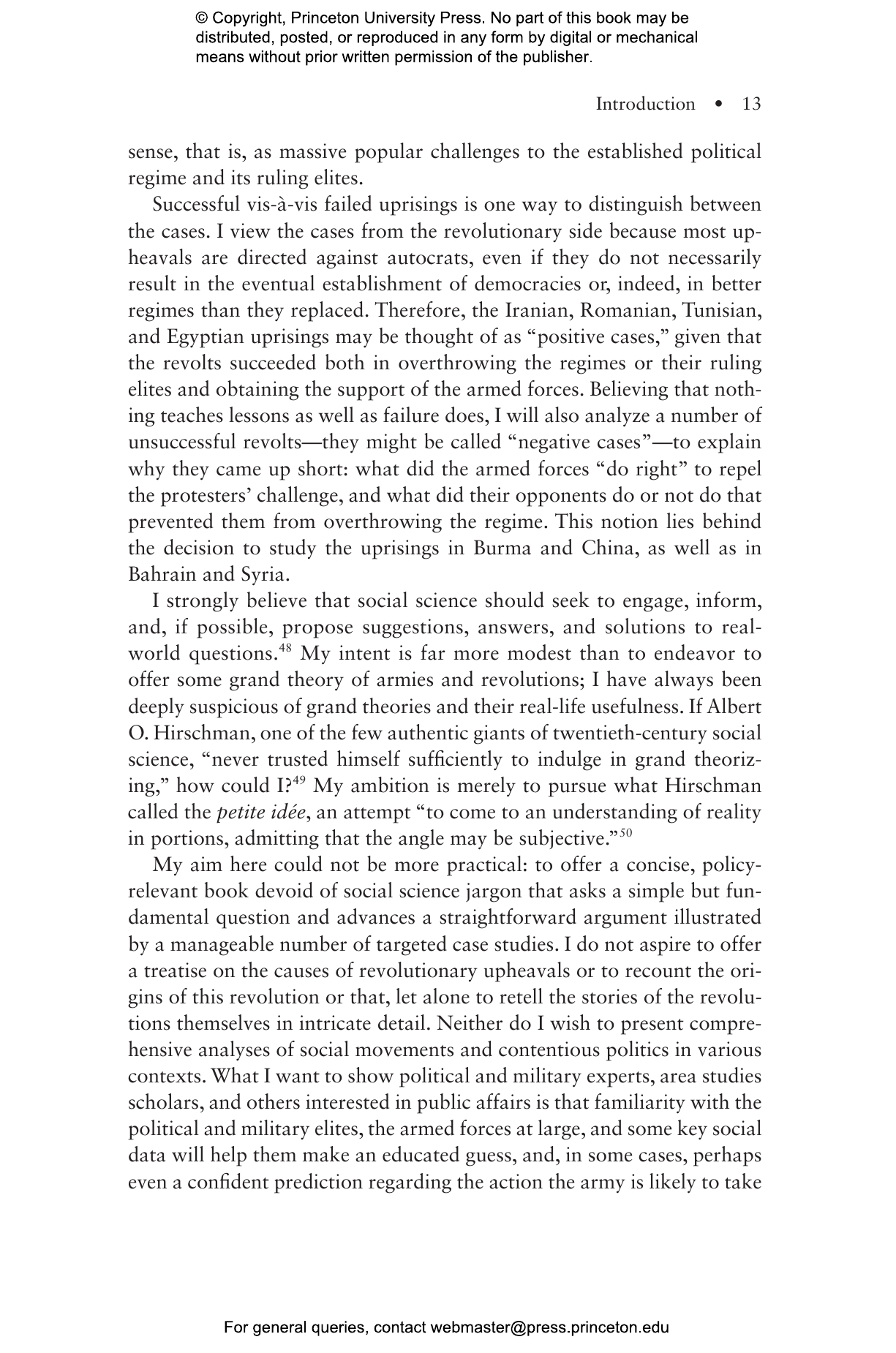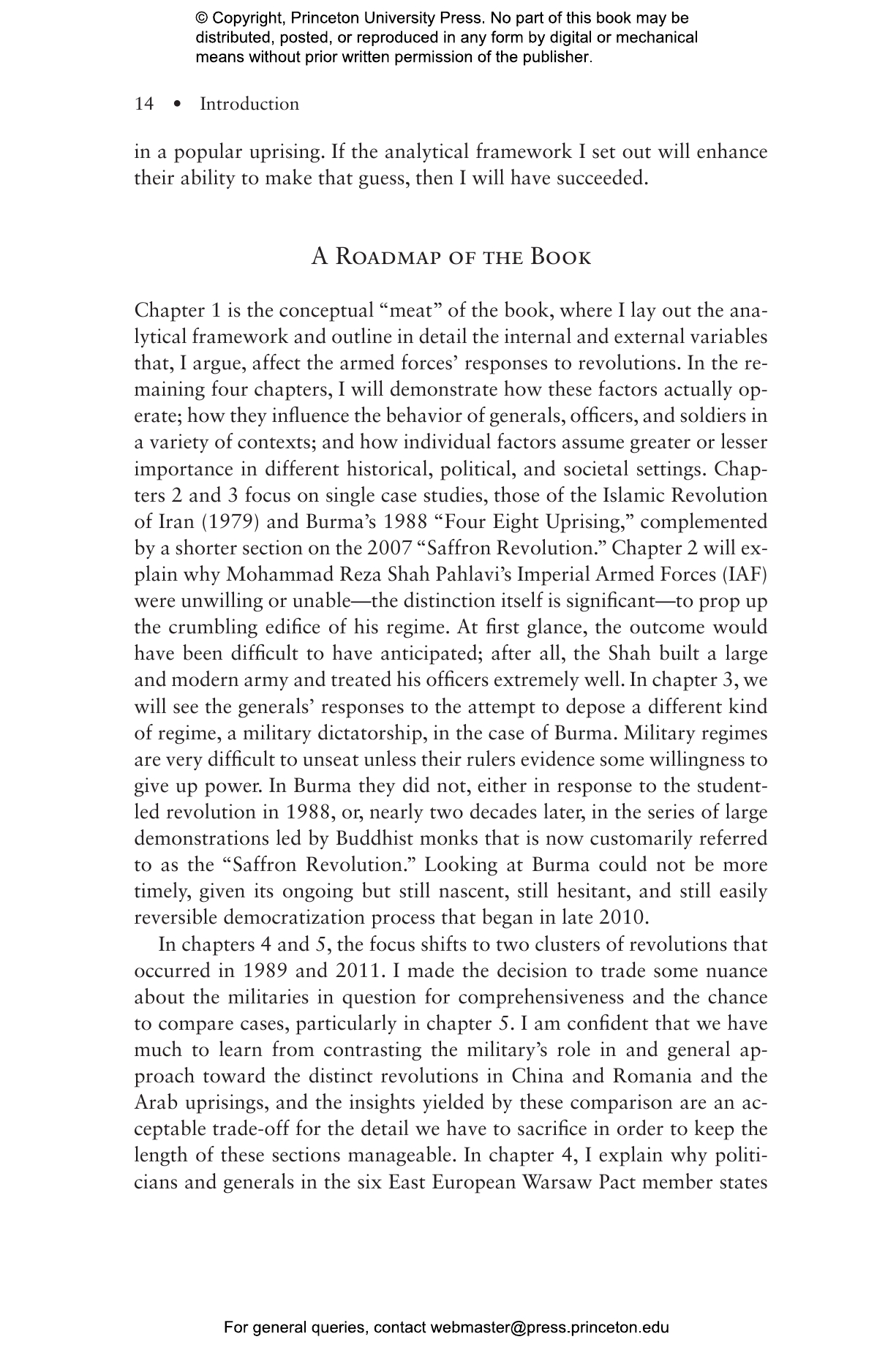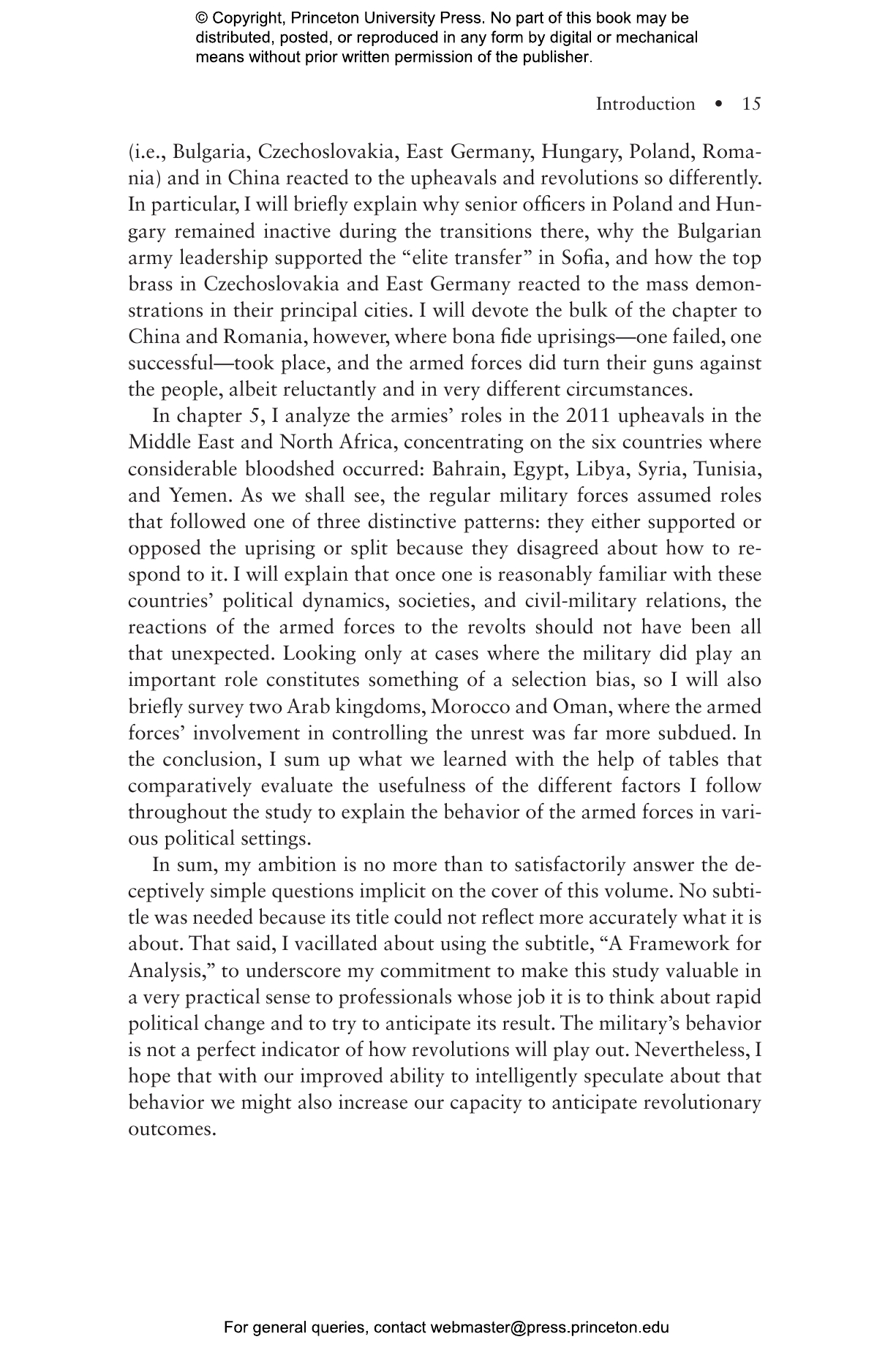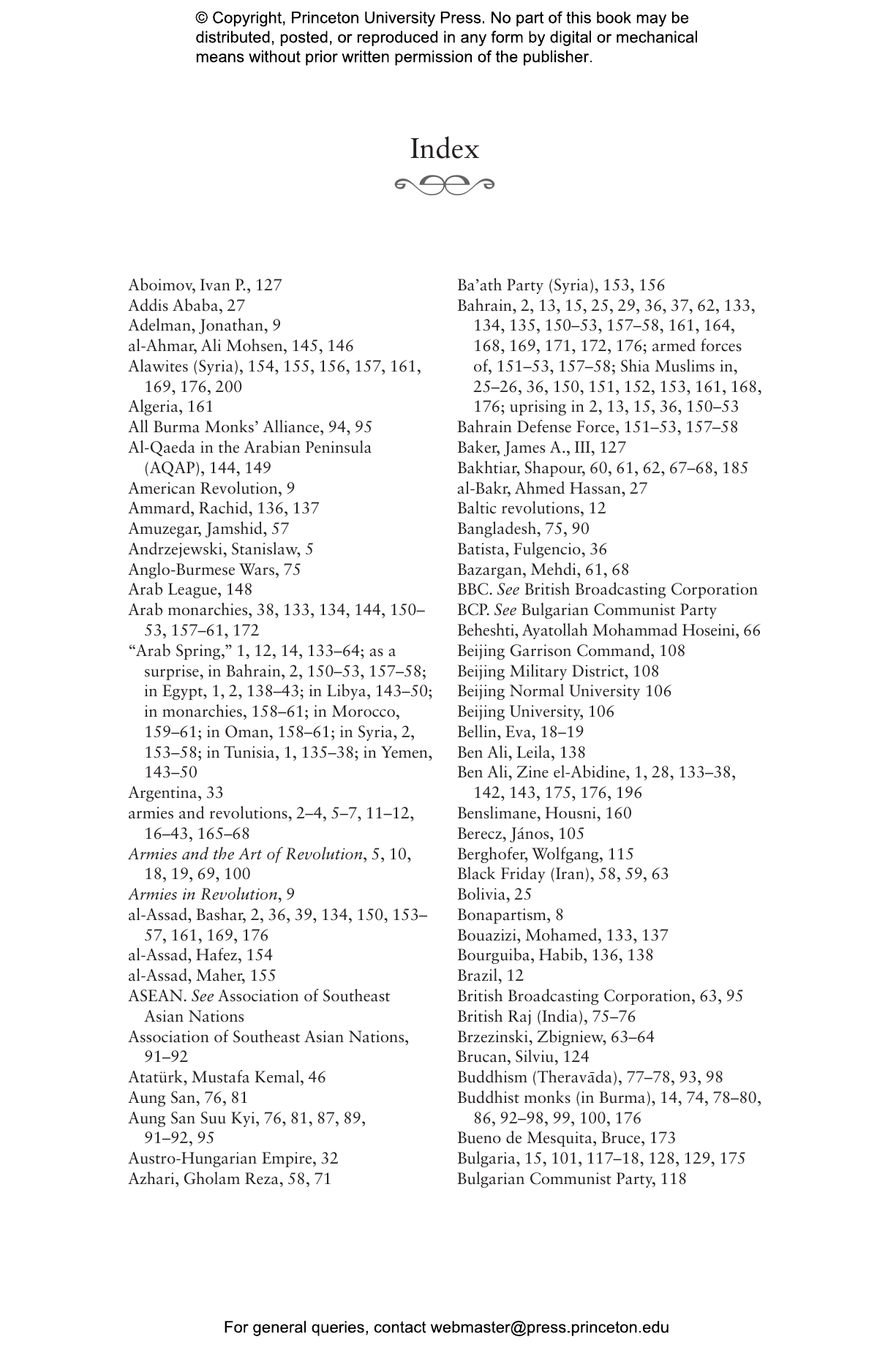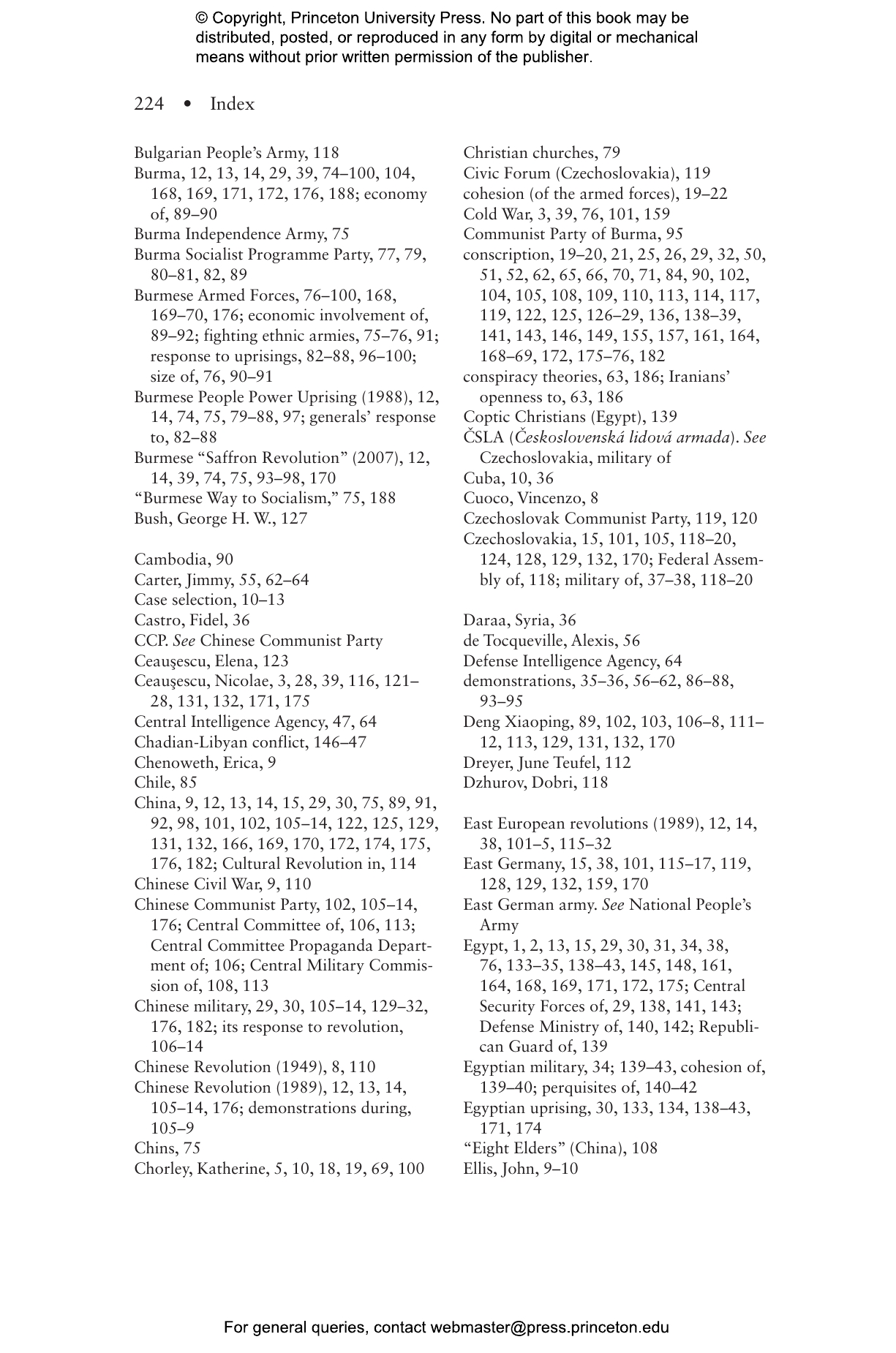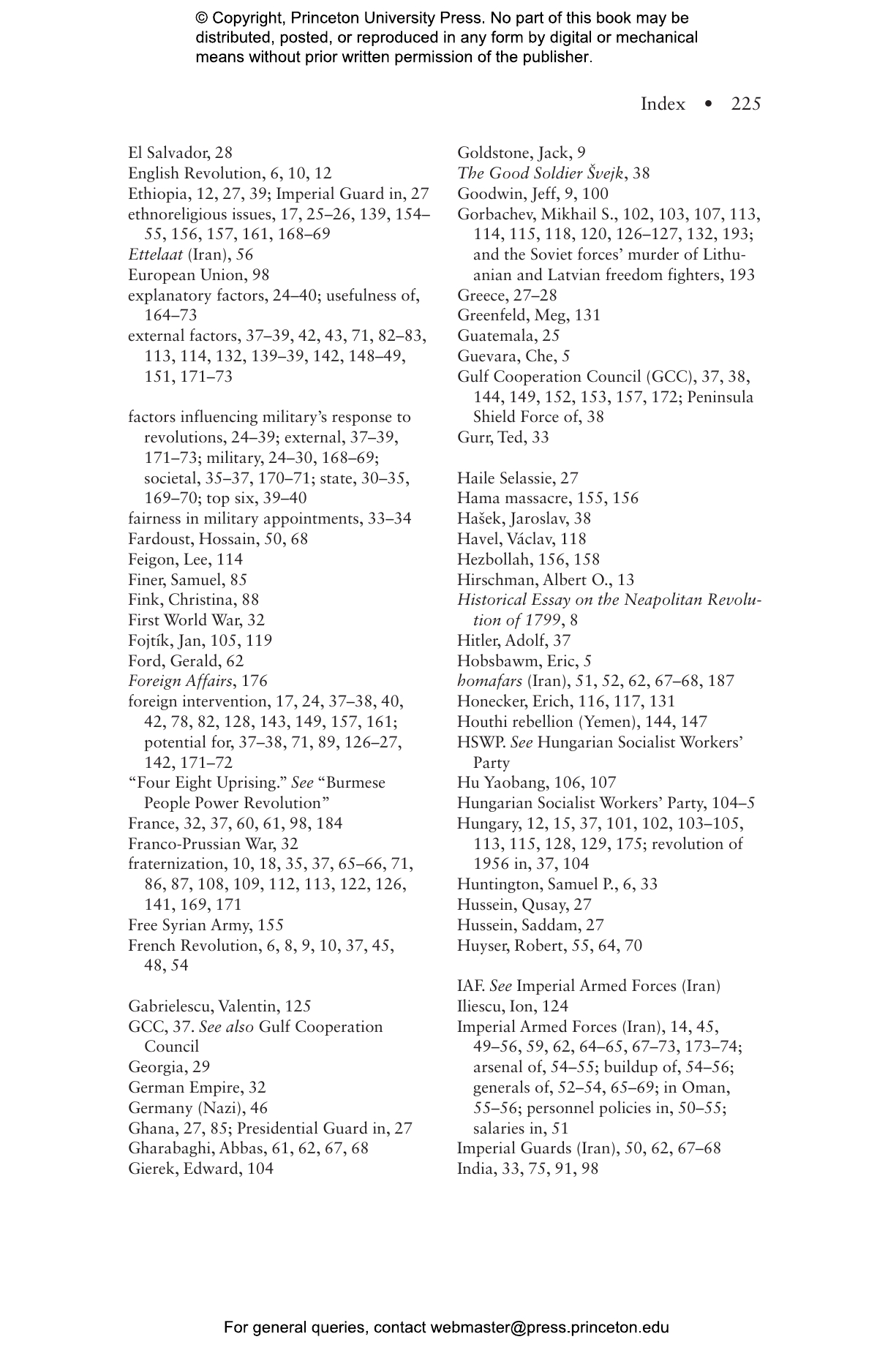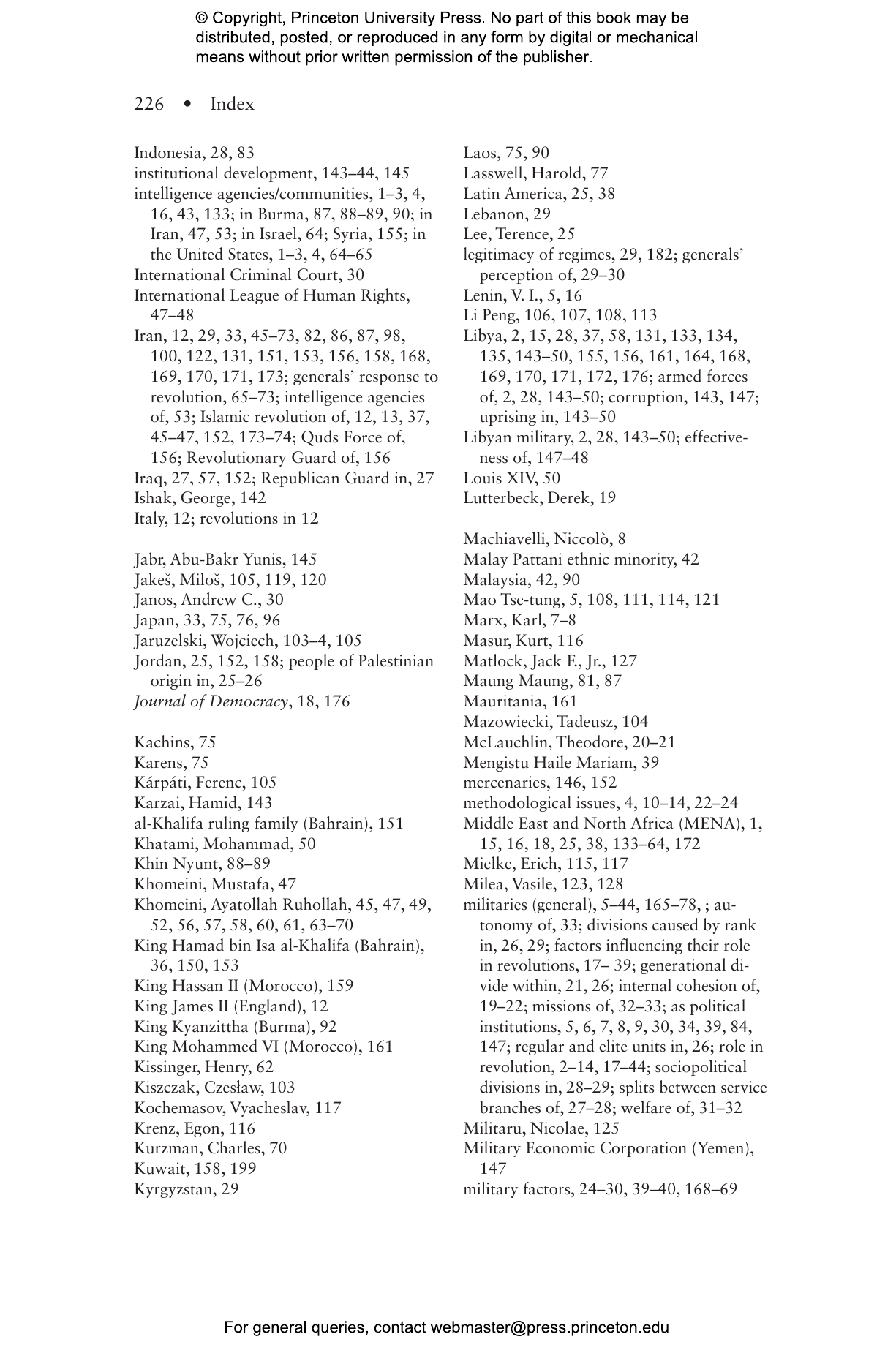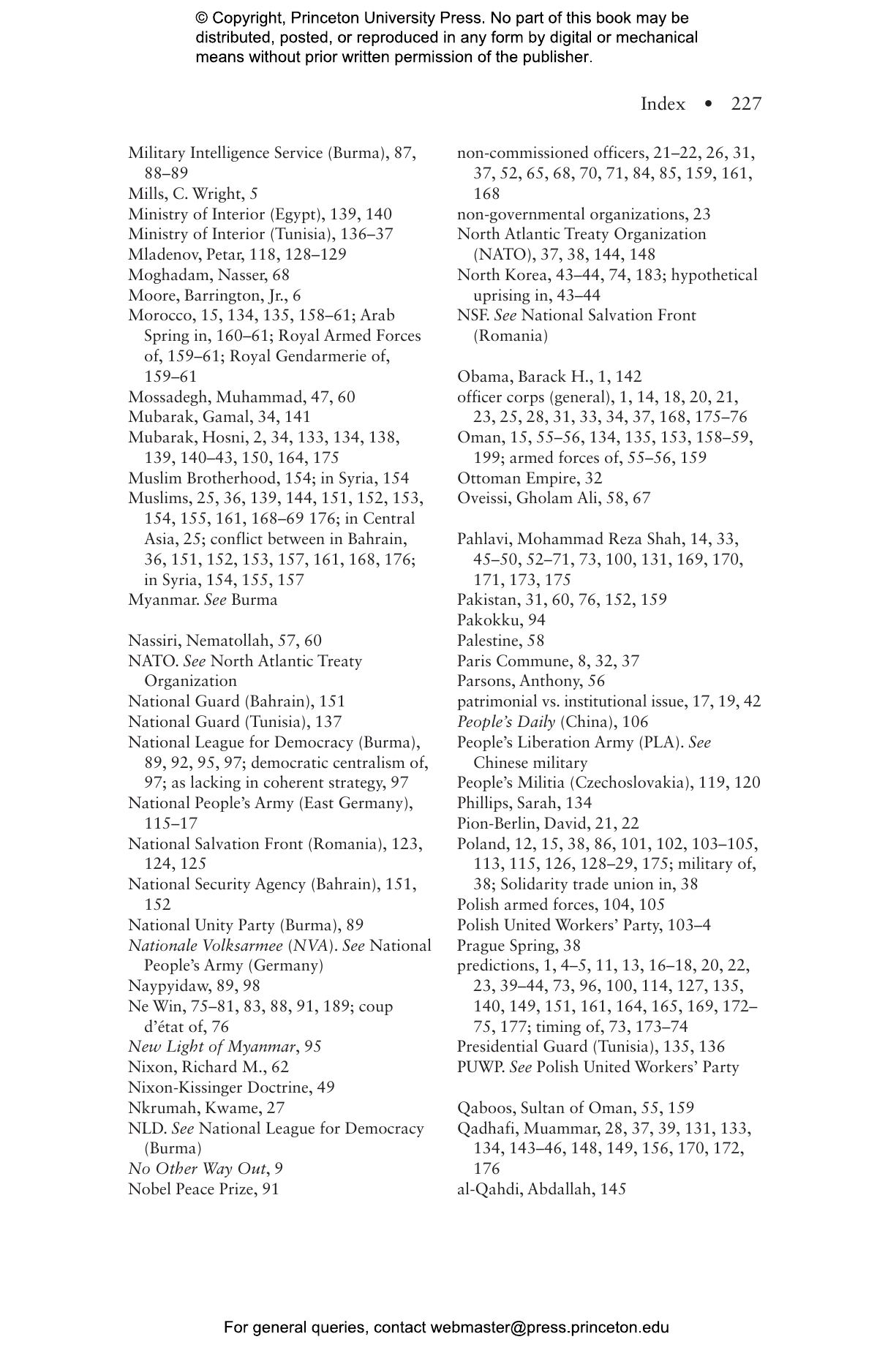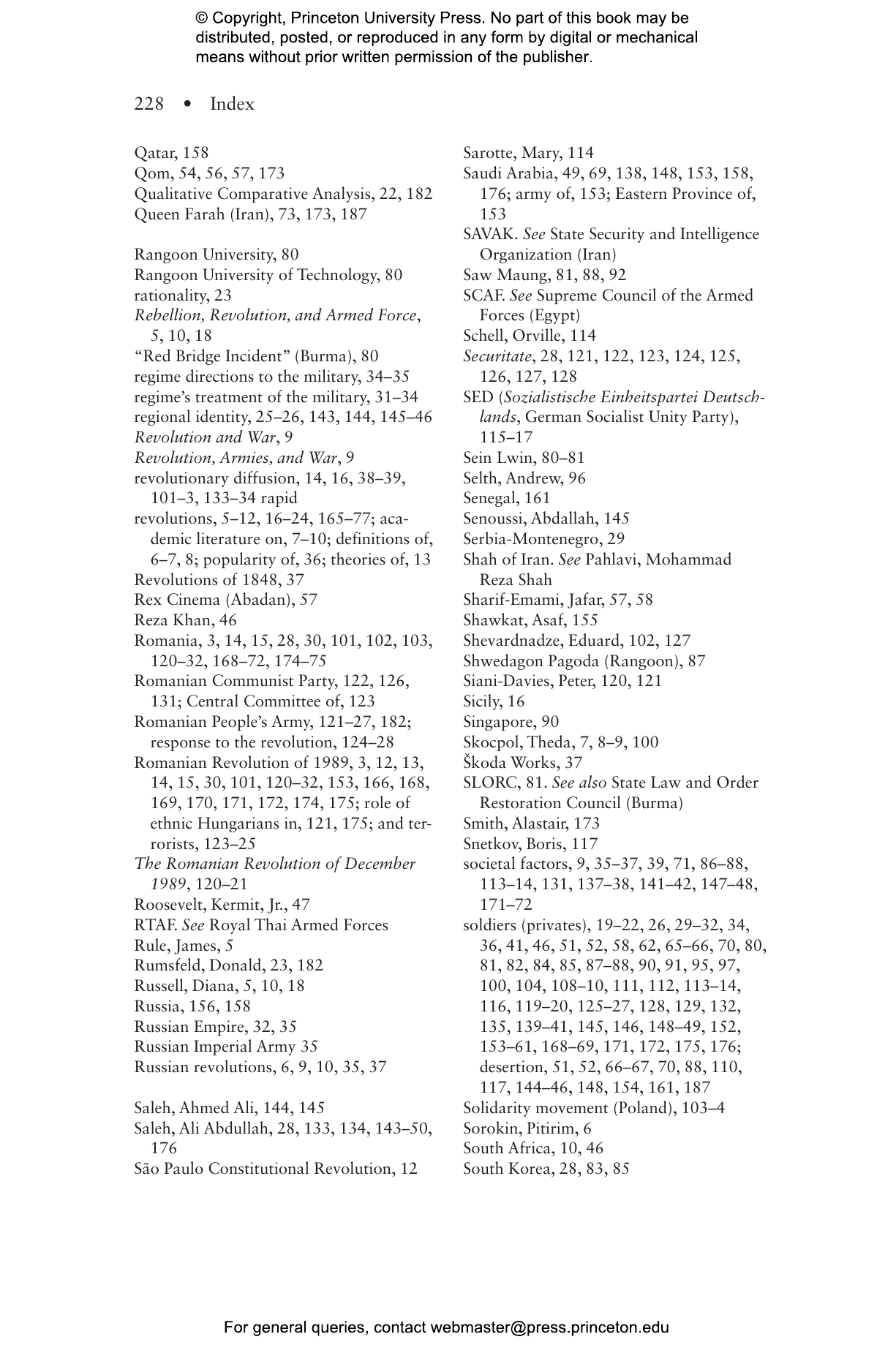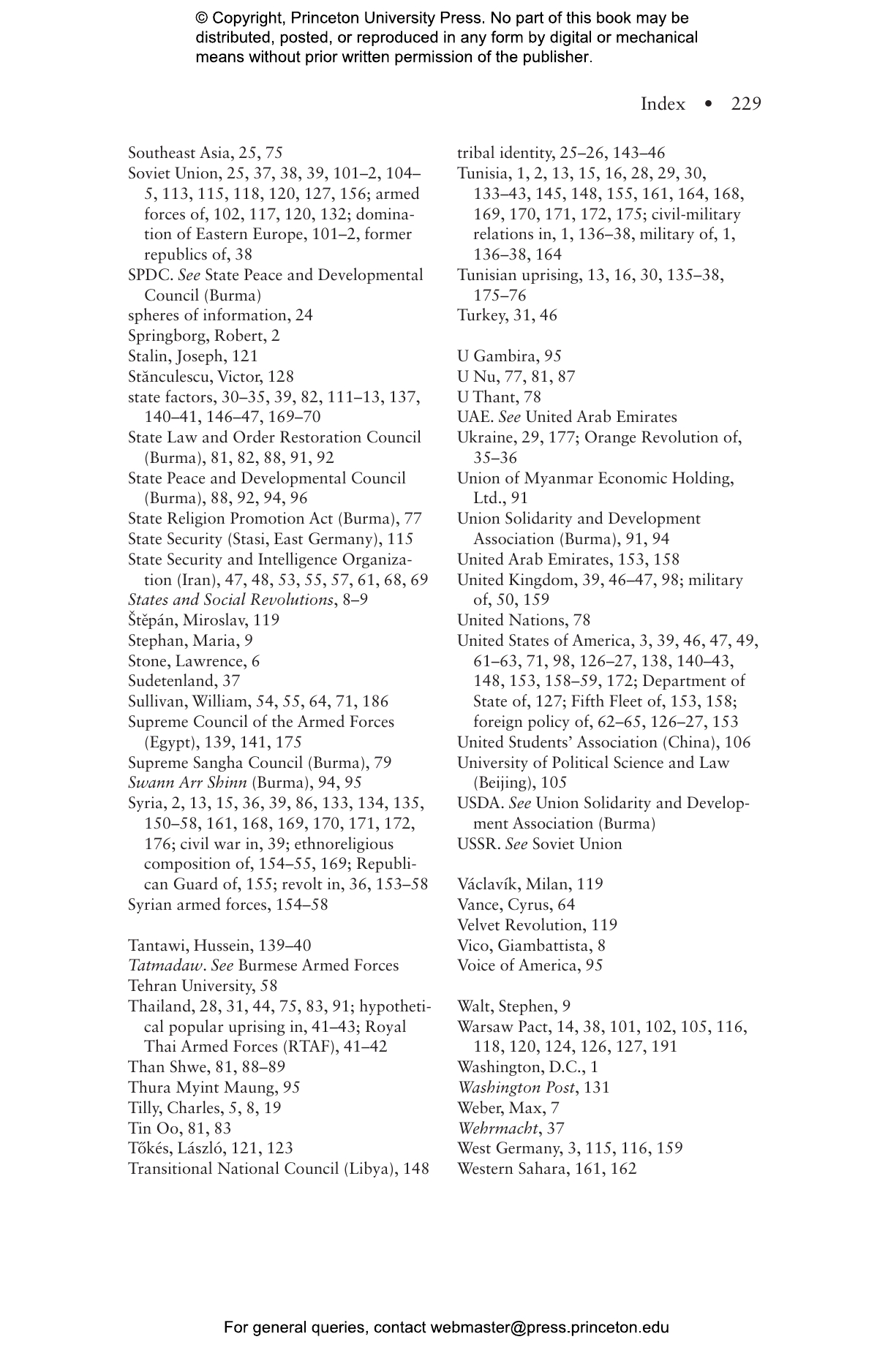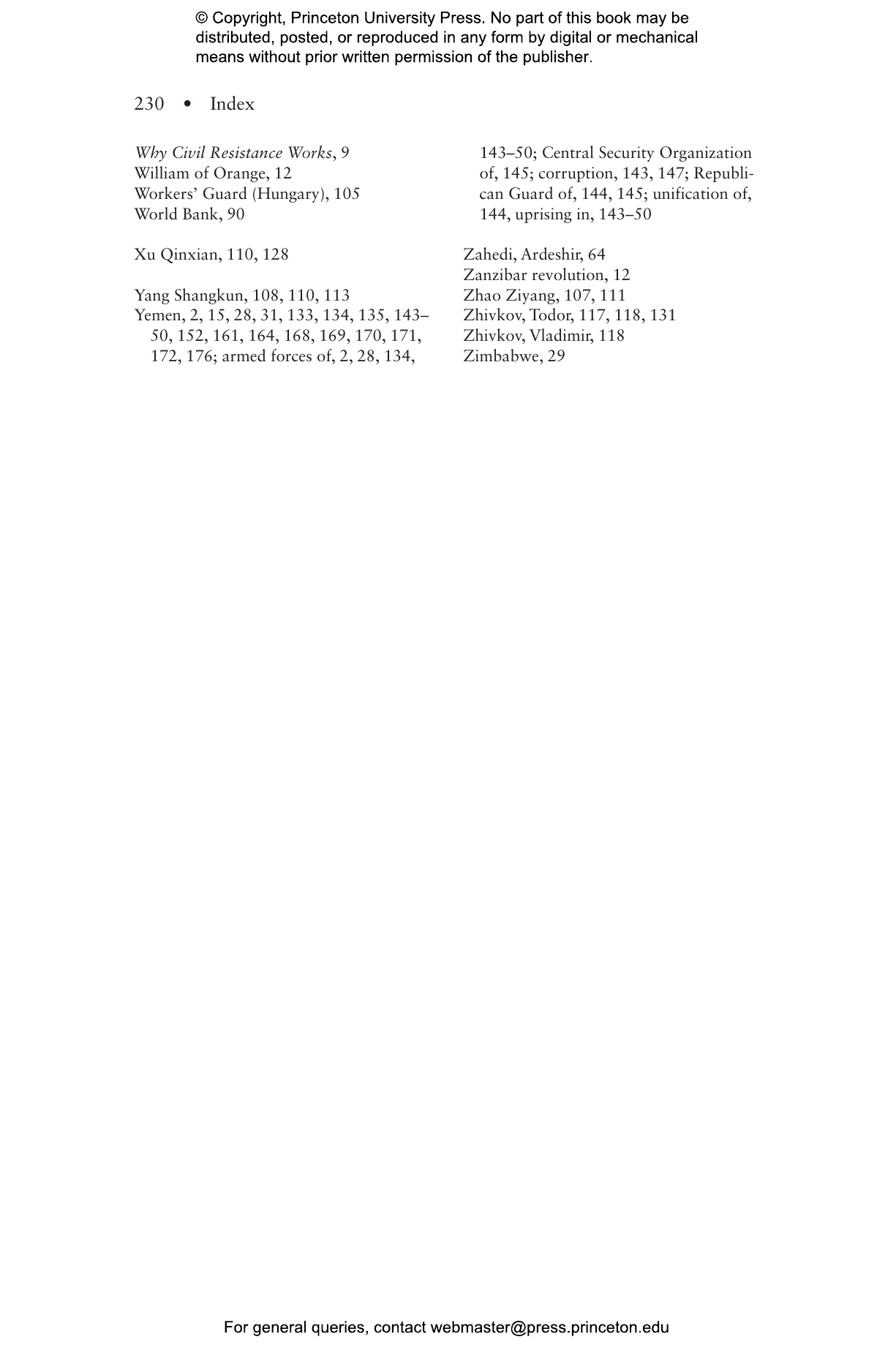We know that a revolution’s success largely depends on the army’s response to it. But can we predict the military’s reaction to an uprising? How Armies Respond to Revolutions and Why argues that it is possible to make a highly educated guess—and in some cases even a confident prediction—about the generals’ response to a domestic revolt if we know enough about the army, the state it is supposed to serve, the society in which it exists, and the external environment that affects its actions. Through concise case studies of modern uprisings in Iran, China, Eastern Europe, Burma, and the Arab world, Zoltan Barany looks at the reasons for and the logic behind the variety of choices soldiers ultimately make.
Barany offers tools—in the form of questions to be asked and answered—that enable analysts to provide the most informed assessment possible regarding an army’s likely response to a revolution and, ultimately, the probable fate of the revolution itself. He examines such factors as the military’s internal cohesion, the regime’s treatment of its armed forces, and the size, composition, and nature of the demonstrations.
How Armies Respond to Revolutions and Why explains how generals decide to support or suppress domestic uprisings.
Zoltan Barany is the Frank C. Erwin, Jr. Centennial Professor of Government at the University of Texas. His books include The Soldier and the Changing State: Building Democratic Armies in Africa, Asia, Europe and the Americas and Democratic Breakdown and the Decline of the Russian Military (both Princeton).
"In this superb book, Barany asks how many militaries in nearly 20 countries responded to popular uprisings from 1979 to 2011."—Choice
"Barany's short work is a welcome addition to the literature on revolutions for its clarity, accessibility, and range of case studies."—Alistair Shawcross, International Journal on World Peace
"A pathbreaking book on the behavior of armed forces in times of popular revolutions."—Hicham Bou Nassif, Perspectives on Politics
"Barany focuses on the critical, yet understudied, question of how militaries respond to revolution. Over the course of his book, he offers a novel theoretical argument and compelling empirical evidence with which to assess that argument. This is an important work that demands the attention of scholars of both revolutions and military institutions."—David M. Edelstein, author of Occupational Hazards: Success and Failure in Military Occupation
"There is no more important factor in the success of revolutions than the response of the old regime army. And there is no more important book on armies in revolution than this beautifully written comparative study by Barany. His insights shed new light on the outcome of events from Iran's Islamic Revolution and the Tiananmen revolt in China to the Arab revolutions of 2010-11."—Jack A. Goldstone, author of Revolutions: Theoretical, Comparative, and Historical Studies
"How Armies Respond To Revolutions and Why is a timely and profoundly perceptive work. Barany deftly mines his well-chosen case studies to identify the logic and decision-making processes that affect civil-military relations in repressive societies at times of acute stress, chronic instability, or outright revolt. This work makes a significant contribution to better understanding the loyalties and proclivities of national militaries and anticipating their reactions when confronted with revolutionary upheaval."—Bruce Hoffman, director of the Security Studies Program, Georgetown University
"Extremely accessible and impressive in its sweep, this book offers a practical and insightful framework for analyzing military actions during revolutions. Barany has a tremendous grasp of civil-military relations and knows his subject matter well. His work will interest policymakers and analysts as well as scholars studying military politics and military responses to mass uprisings."—Risa Brooks, author of Shaping Strategy: The Civil-Military Politics of Strategic Assessment
"How Armies Respond to Revolutions and Why shows great attention to detail, advances its arguments effectively, and presents a clear, conceptual framework. Enlivened by cases and interviews, this book addresses a topic that is timely and clearly pertinent to policy. It will find a solid readership in war colleges, intelligence and policy analysis circles, and courses in intelligence analysis."—David J. Betz, King's College London
